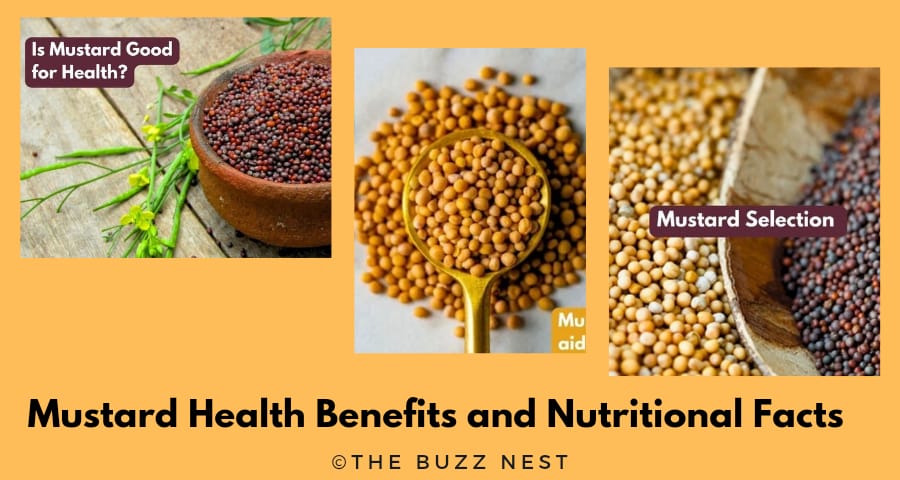Mustard isn’t just a spice that adds flavor to your favorite foods. It’s much more than a spice. It is a powerhouse of nutrients and health benefits that can improve your overall wellbeing. These tiny seeds can fulfil most of your body’s requirements. From mustard seeds to mustard greens and mustard oil, you can use it in every form. So, let’s find out why mustard deserves a spot on your kitchen shelves as well as in your diet and explore mustard health benefits.
Is Mustard Good for Health?
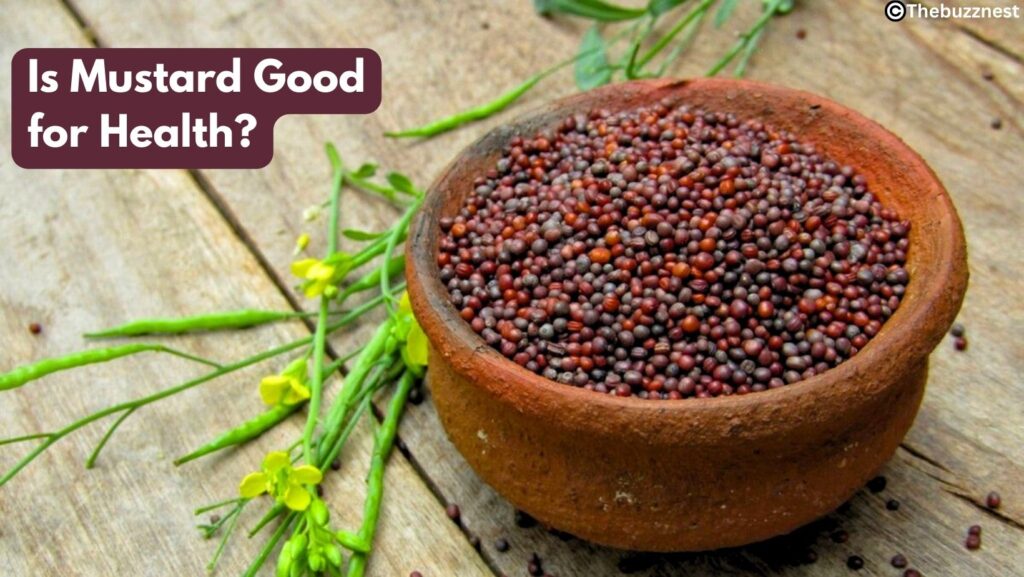
We all know mustard has been used for thousands of years, not just as a food but also for its medicinal properties as well. Each form of this wonder plant is beneficial. Mustard seeds, leaves, and oil—all of them have unique health benefits. You know what? Mustard seeds help protect your body against damage from free radicals. If you start including mustard in your diet, it can also help you to fight stress and keep your cells healthy. Mustard greens and leaves are also incredibly nutritious. They are loaded with vitamins A, C, and K, as well as calcium, potassium, and fiber. All these nutrients are in one plant. Well, this is a must-have, isn’t it?
Mustard Health Benefits
Heart Health
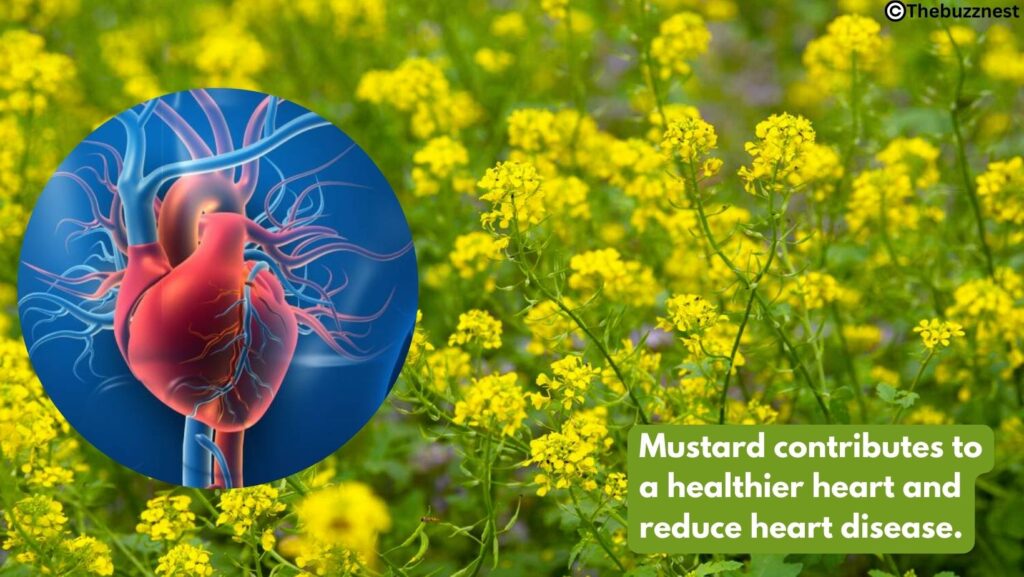
If you also worry about how to keep your heart healthy, then please don’t. Mustard seeds contain omega-3 fatty acids and selenium, which are highly known to reduce inflammation rates. If you are a high blood pressure patient, then you have to eat mustard, as it lowers blood pressure as well. These factors contribute to a healthier heart and reduce heart disease.
Digestive Health
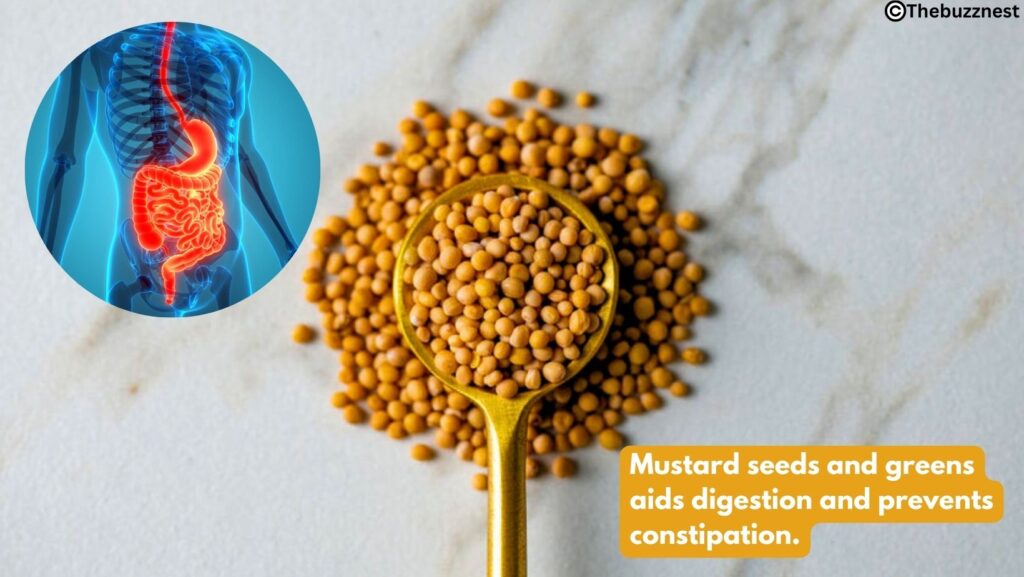
The high fiber content in mustard seeds and greens aids digestion and prevents constipation. This promotes a healthy gut and makes you feel fresh throughout the day. Mustard also stimulates the production of digestive enzymes, which improve metabolism. So, you just do not have to worry about what to eat and what not to, just include mustard, and you’ll be fine.
Anti-Inflammatory Properties

Mustard oil is the best option if you’re looking for massages to relieve pain. Mustard oil improves circulation and helps us to relax. Seeds have anti-inflammatory properties that help reduce pain and swelling conditions. Mustard oil should definitely be included in your daily cooking instead of harmful cooking oils. It not only uplifts the taste of the food but also provides essential nutrients to the body.
Cancer Prevention

Cancer is a disease we all fear. Including mustard in your diet helps you lower the risk of this deadly disease. Mustard contains compounds like glucosinolates and myrosinase, which have been shown to have anti-cancer properties. These compounds can help prevent the growth of cancer cells and reduce the risk of certain types of cancer, including gastrointestinal and colorectal cancers. Eventually our well being is in our own hands, so what’s stopping you from including mustard in your diet?
Lets have a look at the 7-Day Sample Menu for a healthy meal routine!
Skin and Hair Health
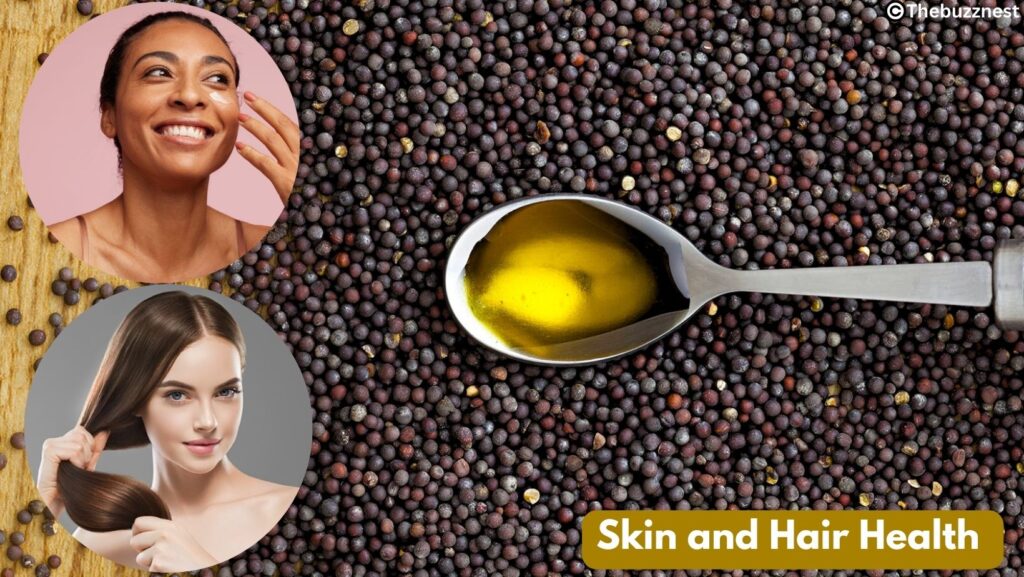
Do you also want glowing skin but are too lazy to do anything for that? Well, you just need to start eating mustard, and that’s it! You have the skin of your dreams. The antioxidants and vitamins in mustard can help improve the health of your skin and hair. Applying mustard oil to your scalp can promote hair growth and reduce dandruff. Consuming mustard can also help keep your skin glowing and healthy.
Respiratory Health
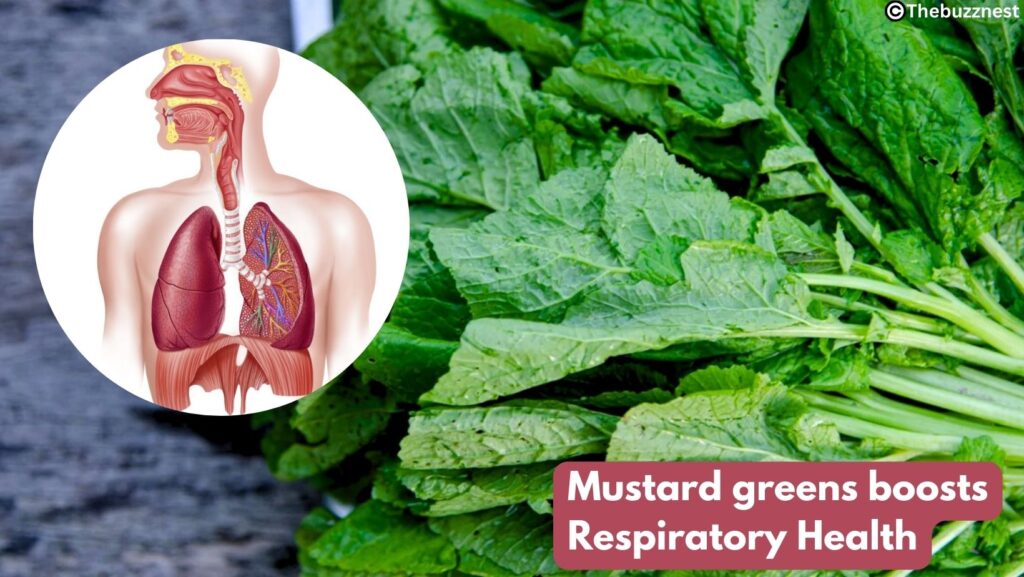
This wonder plant has been used traditionally to treat respiratory problems like asthma, bronchitis, and colds for hundreds of years. Its anti-inflammatory and antimicrobial properties can help clear mucus and improve breathing. So many health benefits have been described, so which one convinced you to start eating mustard?
Nutrition Facts of Mustard
Mustard seeds are a treasure trove of nutrients. Here’s a quick look at what you get from these tiny seeds:
- Calories: 1 teaspoon of mustard seeds contains about 5 calories.
- Protein: 0.3 grams
- Fat: 0.3 grams (mostly healthy fats)
- Carbohydrates: 0.3 grams
- Fiber: 0.2 grams
Mustard seeds are also rich in minerals like calcium, magnesium, phosphorus, and potassium. They contain vitamins A, C, and K, as well as folate and antioxidants.
Guess what? Mustard greens are equally impressive:
- Calories: 1 cup of chopped mustard greens contains about 15 calories.
- Protein: 1.5 grams
- Fat: 0.2 grams
- Carbohydrates: 2.6 grams
- Fiber: 1.8 grams
These greens are packed with vitamins A, C, and K, as well as folate, calcium, and fiber.
Selection of Mustard
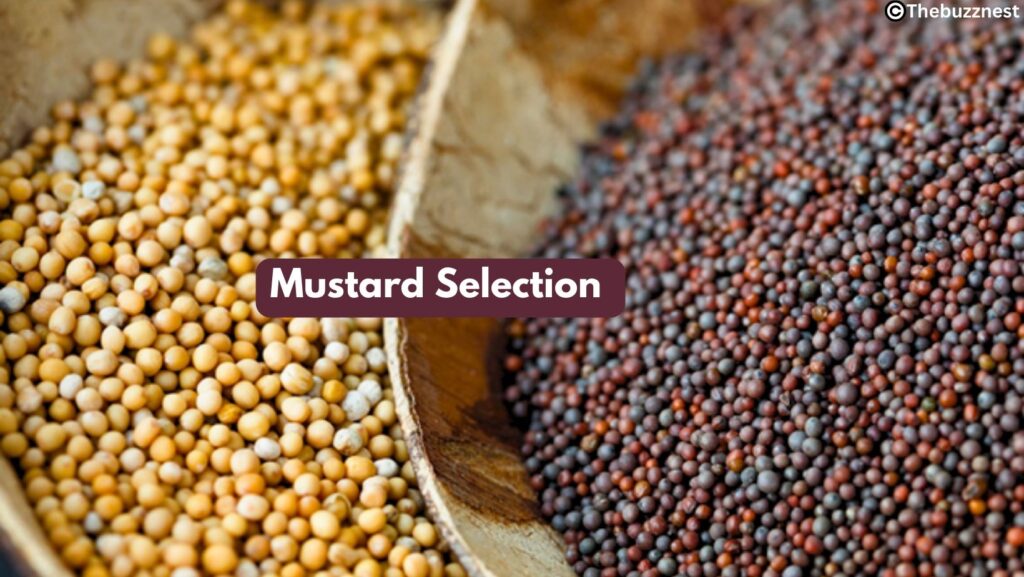
Here are some tips for selecting mustard:
- Mustard Seeds: Choose seeds that are same in size and color. They should not contain any mold or damage. Store them in an airtight container in a cool, dark place to maintain their freshness.
- Mustard Greens: Please look for bright green leaves without any yellowing or wilting. The leaves should be crisp and free from blemishes. Store them in the refrigerator and use them within a few days for the best flavor and nutrition.
- Mustard Oil: Ensure that you are buying pure mustard oil from a reputable brand. The oil should be clear and free from any impurities. Store it in a cool, dark place to maintain its quality.
Want to Apple nutrition facts and their health benefits? Here is the full article.
Possible Side Effects
While mustard has many health benefits, it’s important to consume it in moderation. Not all can consume mustard in same proportion. Here are some potential side effects to be aware of:
- Allergic Reactions: Some people may be allergic to mustard. Symptoms can include skin rashes, itching, and difficulty breathing. If you experience any of these symptoms, stop using mustard and go to your nearest doctor for advice.
- Gastrointestinal Issues: Consuming large amounts of mustard seeds can cause gastrointestinal irritation, leading to symptoms like diarrhea, abdominal pain, and bloating. It’s best to start with small amounts and see how your body reacts. Always eat everything in moderation.
- Thyroid Issues: If you have thyroid problems, it’s best to consult with your doctor before adding large amounts of mustard to your diet. Mustard contains goitrogens, which can interfere with thyroid function.
Mustard is a touchwood a very versatile and nutritious addition to your diet. Whether you enjoy it as a seasoning, a leafy green, or an oil, it offers a wide range of health benefits that can improve your overall well-being. Just remember to consume it in moderation and choose high-quality products for the best results. So, go ahead and spice up your life with the amazing health benefits of mustard!

